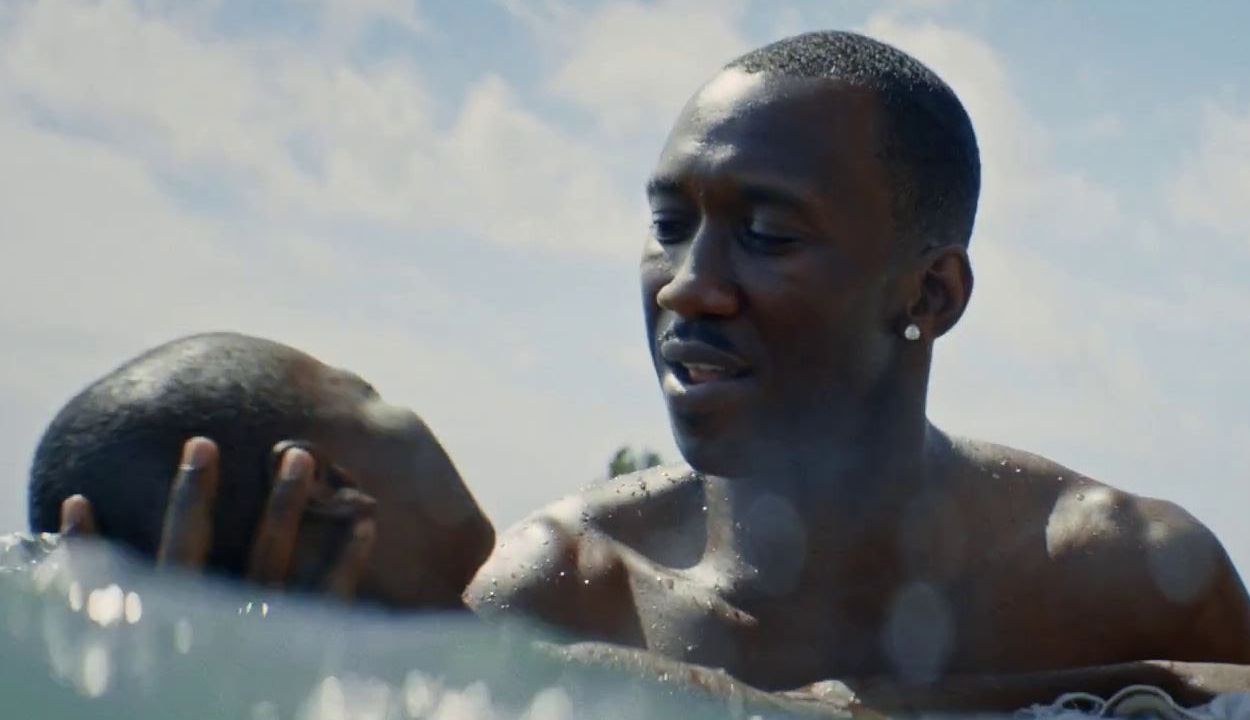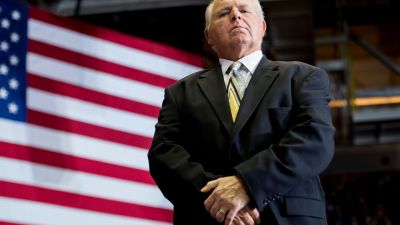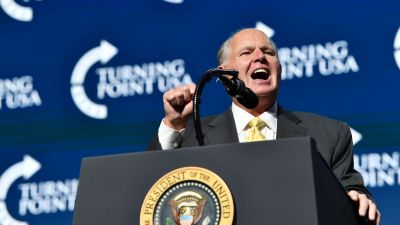
In a scene from Moonlight, drug dealer Juan (Oscar winner Mahershala Ali) teaches the young Chiron (known then as “Little” and played by Alex Hibbert) how to swim. (Photo courtesy of A24)
If you are a progressive, Sunday’s Oscars should have given you something to feel good about, and I don’t mean the gibes at our new president or even the victories by minorities. The mossy cliché about movies is that they provide mindless escape from our daily woes, which, God knows, we have plenty of these days. Even so, it is a condescending as well an antiquated view of movies. Like all art, our best films do not transport us away so much as they take us inside — ourselves, our fellow human beings, our society, our world. That’s why, if like so many tens of millions, you are tortured by the Trump presidency, the movies aren’t a bad place to find solace — not because they numb us to reality and let us escape but because by revealing us they may reveal the true heart and soul of America, which is distinctly non-Trumpian.
To believe that our movies may say more about us than our politics isn’t exactly a novel idea, though conservatives have disputed it. Granted, Hollywood is not a microcosm of the country, nor are Oscar nominees a microcosm of movies. Still, pictures don’t normally receive nominations unless they connect to audiences. (The Oscars aren’t suicidal.) And in any case, movies are like an ongoing election in that they must appeal to a “constituency” (the audience) and that they must attract tens of millions of “votes” (ticket sales) in order to be viable. They aren’t all liberal. By my math, dividing the gross by the average admission price at the time the nominations were announced, roughly 60 million Americans had seen these nine pictures — a pretty substantial number and one that has clearly swelled since.
And this is why this year’s Oscars should be reassuring to those of us floundering in agony in the Trump era. Not one of the nine best picture nominees – not one — channels anything like the reactionary populism, the jingoism and xenophobia, the nativism, racism, muscle-flexing nationalism, the angry narcissism or the joyful divisiveness that infects our politics. Watching these films is like watching a different country than the one that elected Trump, a better country, and despite that argument that the movies and movie audiences skew liberal, it is pretty hard to make that case, not only because the numbers are huge but also because, as a New York Times survey showed, while different movies have different regional appeals, these movies appealed to all audiences, even in the South and Midwest, so-called Trump country. If by our art shall you know us, we are doing pretty well.
Hell or High Water, which I wrote about last year upon its release, may seem the nominee that comes closest to strumming the chords of lower middle-class white discontent. It tells the story of two Texas brothers (Chris Pine and Ben Foster) who become bank robbers to rescue their dead mother’s ranch from foreclosure. Their lives are as arid as the dusty land, and the film captures the despair of people caught in an economic wringer with no way out but crime. And yet the despair here never transmogrifies into Trumpism; indeed, the film’s villains are Trump’s pals: banks and oil companies. And the protagonists don’t blame the similarly afflicted. They simply go out to right their economic wrong. There is far less anger in the film than fatalism, which may help us understand the Trump phenomenon but doesn’t begin to endorse it.
Three other nominees take dead aim on the kind of bullying against the marginalized and the different that Trumpism encourages, even incites. Hidden Figures, about a group of brilliant African-American female mathematicians who make significant contributions to the American space program even as they are being discriminated against in the halls of NASA itself, is a powerful film about racism and sexism and a powerful rebuke against both.
Hacksaw Ridge, the true story of World War II pacifist Desmond Doss (Oscar nominee Andrew Garfield), who must withstand abuse for his unwillingness to bear arms and then is sent into battle at Okinawa without them, is another tale of conscience and courage against the brutes, and though it has the lineaments of countless Hollywood pictures (there is more than a hint of Sergeant York in it), it also speaks to this moment. One can only imagine what our new president would have said about Doss (“Loser!”), and it wouldn’t have been flattering.
Moonlight, the eventual winner and the nominee most likely to enrage conservatives, follows a young gay black man who, like the women in Hidden Figures and Doss in Hacksaw Ridge, must withstand his tormentors as he faces down not only them, but also and more importantly, his own lack of self-worth. It is a film about understanding and finally accepting oneself, and it is a film that shames those who would have shamed its protagonist. Again, it speaks to what is best in us, what is most compassionate.
Lion, an Australian film based on the true story of a young Indian named Saroo Brierley, who, when he was 5, found himself alone on a train taking him a thousand miles from his tiny village and family. With too little information to enable the authorities to return him home, he is adopted by an Australian couple. And then years later, as a college student, he decides to try to find his village and birth mother. It is a moving film about unconditional love and family and how the two intertwine. But in this period of vicious nativism, in which an Indian engineer is killed in a suburban Kansas City restaurant because he doesn’t look American and in which the American government has asserted a me-first attitude, Lion is especially timely because it challenges nationalism with kindness.
Of all these nominees, the one that seems most on-target with the president personally is Denzel Washington’s film adaptation of August Wilson’s Pulitzer Prize-winning play Fences. You wouldn’t think that our billionaire president would have much in common with Troy Maxson, the black Pittsburgh sanitation worker, played by Washington, who is the protagonist of the film. And in most ways he doesn’t. But Fences is, among other things, a film about entrapment — racial, social, familial, psychological — about the fences that have been erected around us and that we erect around ourselves, limiting us, walling us off and, yes, entrapping us. Unlike Trump, Maxson is a big, exuberant man, a commanding presence, a man warped by experience, who winds up, like Trump, warping others, though again unlike Trump, his intentions are often good. I am not suggesting that Trump is as deep as Troy, only that he would benefit from the sort of introspection to which Fences subjects its protagonist. Trump is almost certainly not self-aware enough to find himself in this movie or excavate his shortcomings, but we can.
Two other nominees seem especially relevant, even though there is nothing obviously timely about either. Arrival is about a landing of aliens around the world and an American linguist (Amy Adams) who is brought to a site to communicate with them to see what they want. On one level, the film speaks to global cooperation. We cannot learn what we need to learn if we don’t act in concert and share our knowledge. No “America First.” On another level, the film is about how to deal with loss by reconceptualizing how we live and think. On both levels, the film is affecting and thoughtful, and it takes us beyond our own awful moment and beyond politics to epistemology.
Similarly, writer/director Kenneth Lonergan’s Manchester by the Sea (for which Lonergan won the Oscar for best original screenplay), my personal favorite, could and would be almost unbearably devastating at any time anywhere as it deals with loss, guilt, redemption, love and survival: a panoply of great themes. Of these, survival may be the one that is most affecting now since the film’s protagonist, a Quincy, Massachusetts janitor (best actor winner Casey Affleck) who cannot live with the responsibility he must bear for a horrific tragedy, must nevertheless find some way to continue. Like Lion, it is about love. The film is suffused with it because love is one of the things that enables us to soldier on in the face of the unremitting grief that life often hands us. And it is a reminder, lest we need one, that politics is only one part of life, and not the largest part.
Finally, there is La La Land, which took home the biggest Oscar haul, including best director for Damien Chazelle and best actress for Emma Stone. The film’s conceit has prompted most of the celebration: It is, as you undoubtedly know, an old-fashioned 1950s romantic musical. Of all the contenders, it was probably the most escapist. Audiences are charmed by it. (I was charmed by it.) But then there is that epilogue that is anything but escapist — one which, without spoiling things, talks not of fantasy but of fatalism, not of happy endings but of how the choices we make shape our destiny. In a sense, you could say that La La Land, whatever else it is about, is about responsibility rather than blame, which makes it as much an anti-Trump era film as any of the others.
Of course, these films were all in the pipeline long before a Trump candidacy, so what they reify was in the air long before Trump. Perhaps we have changed since. Perhaps they over-represent the compassionate among us. Perhaps these are, after all, Hollywood pipedreams, a gloss on reality, though it is hard to think of Manchester by the Sea or Hell or High Water or Arrival or Fences as a gloss on anything. Perhaps they are obsolete now in a political sense.
But I have a feeling that when cultural historians look back at this mad time and ask how we suffered a national nervous breakdown, they may look at our films and realize that the affliction wasn’t everyone’s, and it wasn’t the American soul that our bizarre president represented. These movies show, as has been remarked upon, a diverse country, but also a big-hearted, empathetic, introspective one. They suggest that regardless of the political moment, we as a people are better than our current government — maybe even as good as our movies portray us to be.




